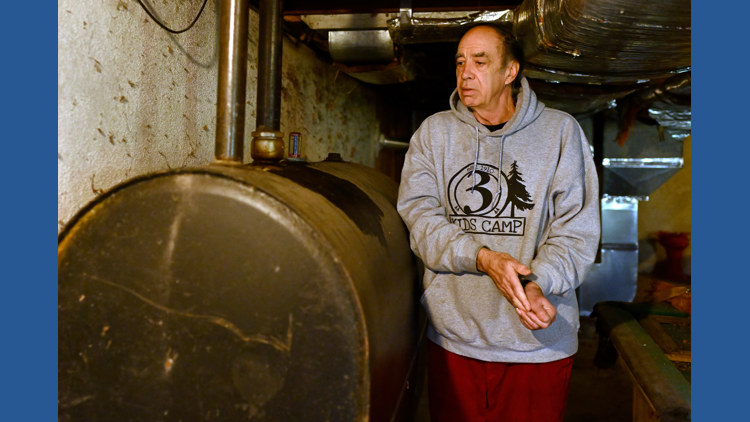The ongoing federal government shutdown is putting at risk heating assistance for millions of low-income families, as states warn of delayed funding from the Low-Income Home Energy Assistance Program (LIHEAP). This program is crucial for many households as colder temperatures approach across the United States.
Jacqueline Chapman, a 74-year-old retired school aide from Philadelphia, relies on her monthly Social Security check of $630 to meet her expenses. Recently, she learned that not only are her federal food aid benefits being cut, but the assistance she depends on for heating her apartment may also be delayed. “I feel like I’m living in scary times,” she expressed. “There isn’t too much you can do.”
LIHEAP, which assists families in covering heating and cooling costs, has a budget of approximately $4.1 billion and serves about 5.9 million households nationwide. As the shutdown continues, states like Kansas, Pennsylvania, New York, and Minnesota have begun to announce that their LIHEAP programs will face delays. According to Mark Wolfe, executive director of the National Energy Assistance Directors Association, the impact on low-income families could be severe if the situation persists. “The impact, even if it’s temporary, on many of the nation’s poor families is going to be profound,” he noted.
LIHEAP, established in 1981, has historically enjoyed bipartisan support. States manage the program and receive federal funding based on weather patterns, energy costs, and low-income population statistics. Despite expectations that Congress would fund LIHEAP for the fiscal year beginning on October 1, 2023, the ongoing budget impasse has left states without their new allocations.
In Pennsylvania, Governor Josh Shapiro’s administration indicated that it cannot provide the anticipated $200 million in federal LIHEAP aid, causing delays in payments that typically support around 300,000 households. The state now predicts that payments will not be issued until at least December, rather than the usual November timeline. In Minnesota, although applications are being processed, the Department of Commerce stated that federal funding would likely be delayed by a month, creating uncertainty for 120,000 families relying on the program.
Connecticut is currently able to fund LIHEAP through the end of November, but faces challenges if the shutdown continues. State lawmakers are considering using budget reserves to temporarily cover costs. Rhonda Evans, executive director of the Connecticut Association for Community Action, warned that the situation would become more urgent as the heating season progresses. Last year, over 100,000 households received assistance through the program.
The U.S. Department of Health and Human Services, which oversees LIHEAP, attributed delays to the federal shutdown. A Department spokesperson stated that once the government reopens, the Administration for Children and Families will quickly process annual awards. However, there are concerns about potential long-term delays, including the impact of staffing reductions on program administration.
Many families are left in a precarious position. For instance, Mark Bain, a 67-year-old resident of Bloomfield, Connecticut, has been receiving assistance for home heating oil for three years. He expressed anxiety about his current situation, stating, “I was desperate. I was on fumes.” This year, he has been approved for $500 in assistance but has not yet ordered more oil, hoping that federal funding will be available by the time he needs it.
The situation highlights the challenges faced by low-income families during this critical period. With energy prices rising and multiple safety net programs experiencing funding issues, the need for timely assistance has never been more urgent. As winter approaches, families like Chapman’s and Bain’s may find themselves in increasingly dire circumstances if the federal government does not resolve its budget issues.







